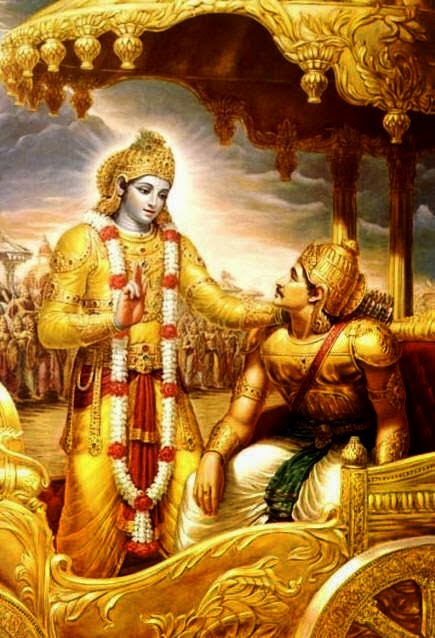Gita : Ch-4. Slo-20.

Srimad Bhagavad-Gita : Chapter-4. ( Jnana-karma-sanyasa-yogam ) Slokam-20. ( After giving up desire / attachment for fruitive results, always satisfied, indifferent to external phenomena, he, in spite of being engaged in activities , does not do anything at all. ) tyaktva karma-phalasamgam nitya-trpto nirasrayah, karmany abhipravrttopi naiva kincit karoti sah. karma-phalasamgam tyaktva = having given up the desire / attachment for the fruits / results/gains; nitya-trptah = always being satisfied ( in the inner satisfaction/ atmanandam); nirasrayah = not depending anything else; sah karmani = he, in his activities; abhipravrttah api = being fully engaged in spite ...










.jpg)

.jpg)